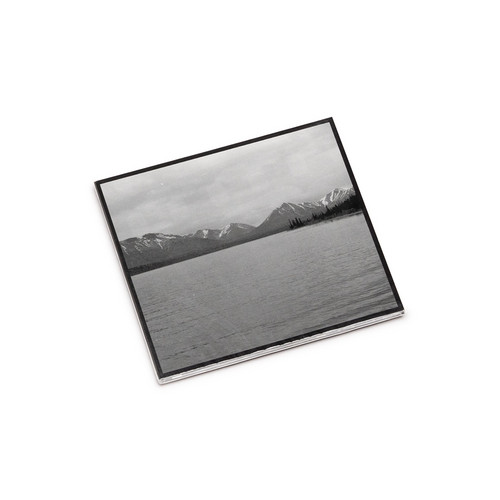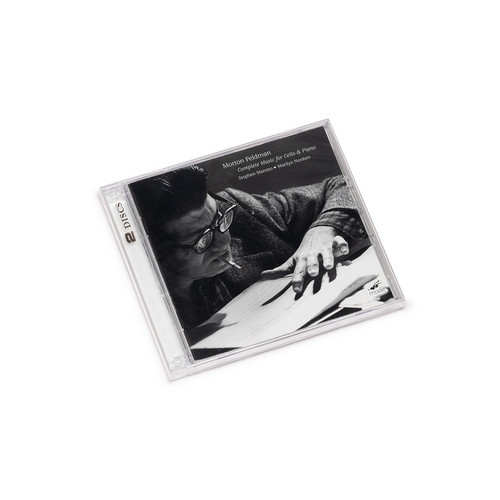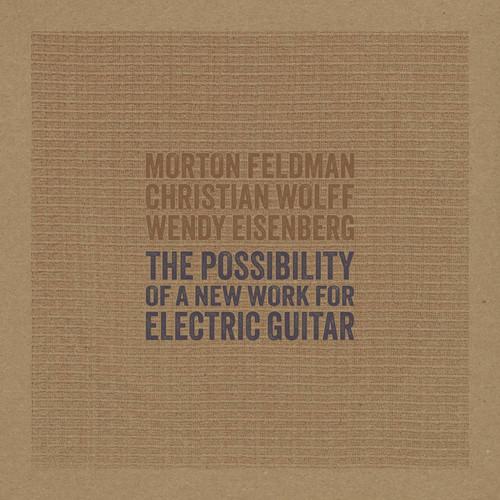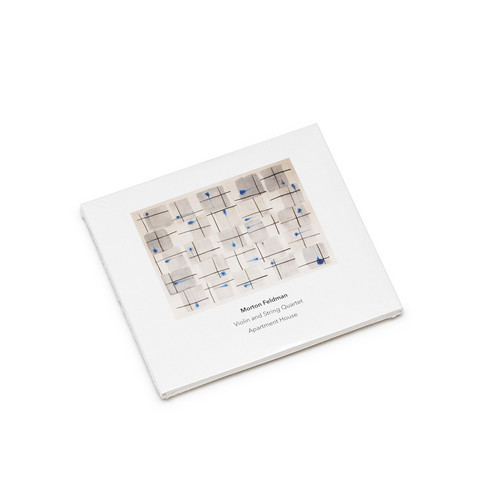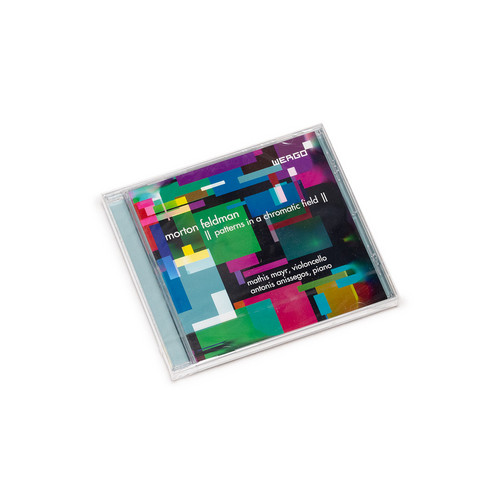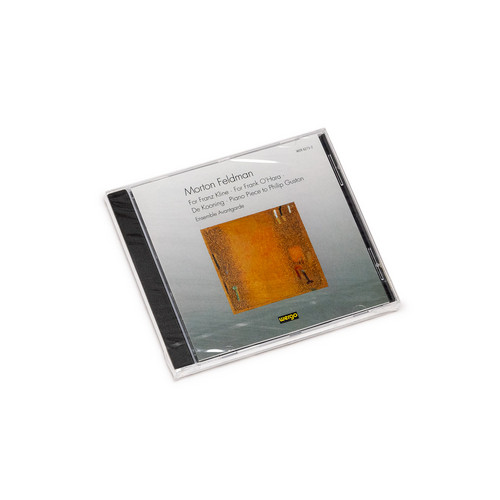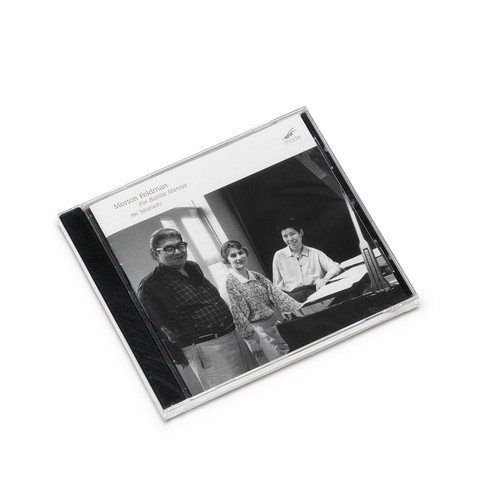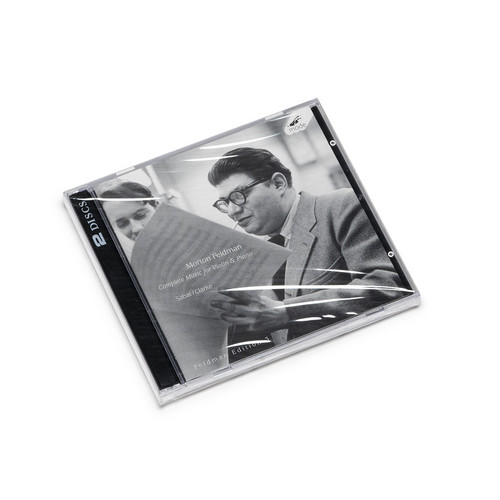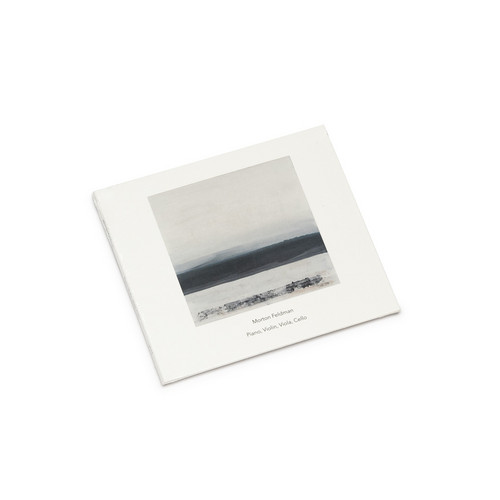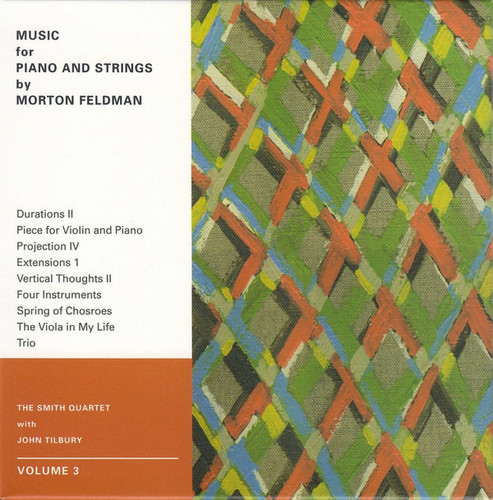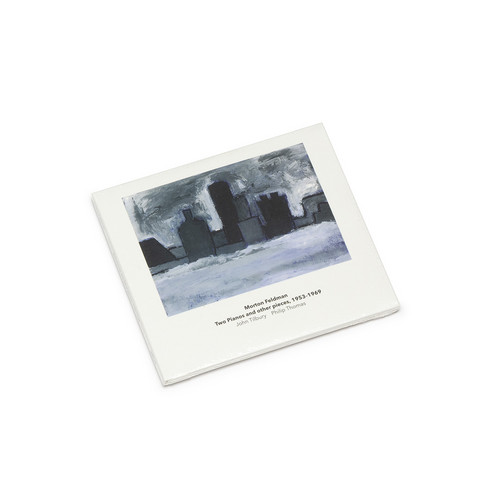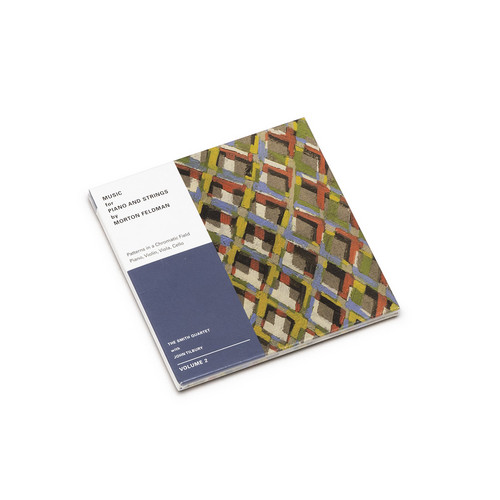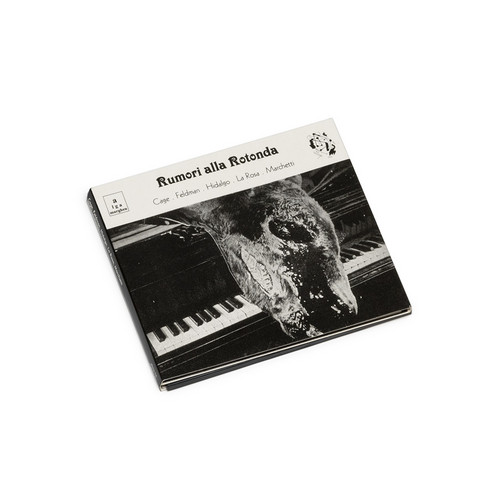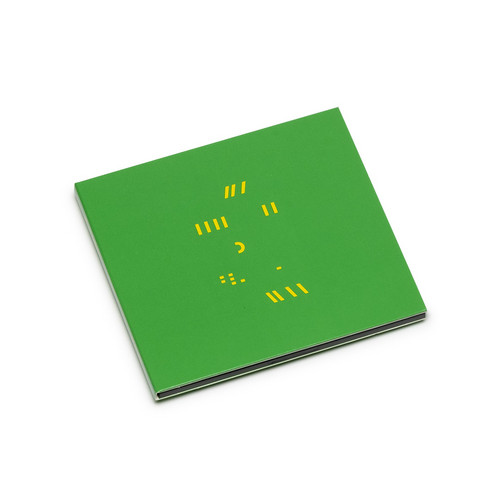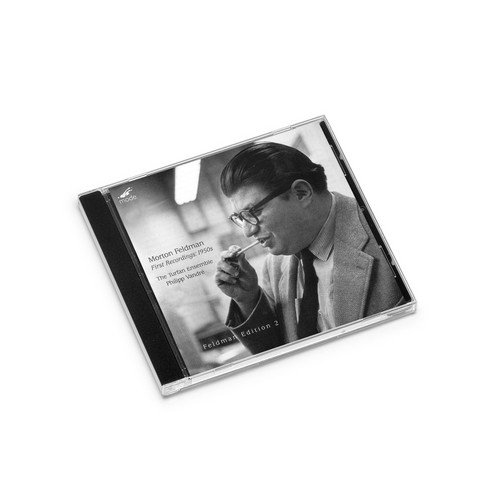Morton Feldman
Morton Feldman (January 12, 1926 – September 3, 1987) was an American composer, born in New York City. A major figure in 20th-century music, Feldman went through several compositional phases. He was a pioneer in aleatoric music and indeterminate music, and in music requiring improvisation. His works are characterized by quietness, slowness, and often by their extreme length, especially in his later music.

Morton Feldman (January 12, 1926 – September 3, 1987) was an American composer, born in New York City. A major figure in 20th-century music, Feldman went through several compositional phases. He was a pioneer in aleatoric music and indeterminate music, and in music requiring improvisation. His works are characterized by quietness, slowness, and often by their extreme length, especially in his later music.
Intermissions
Feldman and Tobias Hume (performed by Luciana Elizondo and Guy Vandromme).
Feldman Edition 14: Complete Music for Cello & Piano
Huge Tip! This release brings together all of Morton Feldman’s compositions for cello and piano, including unpublished works and a first recording. Together, these works tell the story of Feldman’s music. They span 35 years — over half his lifetime — from when he was searching for his voice as a student to when he was opening new doors in the last years of his life. The album is bookended by two realizations the graphic score “Durations 2” (1960), giving an opportunity to hear what the flexibili…
The Possibility of A New Work for Electric Guitar
Other Minds is proud to present The Possibility of a New Work for Electric Guitar, a new limited-edition 12” 45 RPM vinyl disc of music by Morton Feldman and Christian Wolff, performed by Wolff and Wendy Eisenberg. Side A features two performances of Morton Feldman’s The Possibility of a New Work for Electric Guitar, written for Wolff (who professes to be “not really a guitar player”) in 1966 as an experiment on the instrument. On his way to perform The Possibility of a New Work for Electric Gui…
Violin and String Quartet
Dating from two years before the composer's death in 1987, 'Violin and String Quartet' lasts two and a quarter hours, throughout which the strings weave gently shifting patterns of sound. It is one of Feldman's most beautiful pieces.
Patterns In A Chromatic Field
'Morton Feldman has proved one of the 20th century’s most influential composers. Yet he remains one of its most enigmatic, and his late works retain an aura of mystery steeped with the grandeur, anxiety and quietly changing colour he adored in abstract expressionist painting and, latterly, Anatolian rug design. Patterns in a Chromatic Field (1981) is perhaps the most rhythmically active of these famously long, static pieces, which showed his increasing preoccupation with matters of form, scale a…
For Franz Kline · For Frank O'Hara · De Kooning · Piano Piece To Philip Guston
*2022 stock* Wergo presents Moton Feldman's compositions For Franz Kline · For Frank O'Hara · De Kooning · Piano Piece To Philip Guston. Performed by Ensemble Avantgarde.
For Bunita Marcus
"For Bunita Marcus opens with a clear call to our attention. With these first six notes, we step over the threshold and into the journey of the piece. We know that we are in this for the long haul: Morton Feldman’s late works are notorious for being marathons. He composed For Bunita Marcus in 1985, immediately after his four-hour For Philip Guston, and two years after his six-hour String Quartet (II) These earlier works make an hour-long solo piano piece seem short. Still, it is a long time to …
Complete Music For Violin & Piano
Here, collected for the first time, are all of Morton Feldman's compositions for violin and piano. It is also a kind of walk through his compositional development, from the Webernesque early Piece for Violin and Piano (1950); through the experiments with graphic notation in Projection 4 (1951); followed by an excursion into the jungle-like density of David Tudor's energy in Extensions 1 (1951); to the cryptic notational riddles of Vertical Thoughts 2 (1963); from the dry carpet-dusting Spring …
Piano, Violin, Viola, Cello
“Another Timbre has been contributing excellent recordings to the rapidly expanding universe of what might still be called “Classical” music, and nowhere more convincingly than in the shimmering beautiful tapestries woven by Morton Feldman. The label’s double set of Feldman’s earlier piano works would be an excellent place to begin for anyone wishing to slide into familiarity with his work, as it’s wonderfully performed by John Tilbury and Philip Thomas. Pianist Mark Knoop, violinist Aisha Orazb…
Music for Piano and Strings by Morton Feldman. Volume 3
At its best Feldman's music can take our breath away, providing a revelatory experience, a transparency which has no need of argument. Thinking back to Piano and String Quartet there are moments of extraordinary beauty when, through a sudden change of register, darkness enshrouds the music; elsewhere the string sound enshrouds the piano arpeggios. Morton Feldman seems to occupy a metaphysical space and encroaches on the domain of spirituality normally associated with religion. Thus art w…
Two pianos and other pieces, 1953-1969
A double CD of music for multiple pianos from what is arguably the most experimental and interesting period of Morton Feldman's development as a composer. Some of the pieces have been very rarely performed or recorded, and have probably never been in better hands.
The music featured on these two discs testifies to the intensity of Feldman's experimentation with notation and sound during the 1950s and 60s. Considering the works chronologically one senses the composer trying out, teasing and deve…
Music for Piano and Strings by Morton Feldman. Volume 2
The 2nd volume of "Music for Piano and Strings" by Morton Feldman is performed by The Smith Quartet with John Tilbury, presenting "Patterns In a Chromatic Field", and "Piano, violin, Viola, Cello", on DVD audio to allow for the length of these large works
Several lifetimes ago, when I was nineteen, I was interviewed by Wilfrid Mellers for a place at York University. That I failed to win a place may have been due in part to the confinement of our discussions to the music of Morton Feldman. Wilfr…
Rumori alla Rotonda
Live recording at the Rotonda del Pellegrini, Milan, January 21st, 1959 featuring John Cage, Morton Feldman, Juan Hidalgo, Leopoldo La Rosa, and Walter Marchetti. Among all the events involving John Cage during the long stay in Europe that followed his controversial appearance at Darmstadt Ferienkurse in September 1958, the concert he held in Milan on January 21st perhaps represents a less well known episode.
Featuring Cage's intervention both as composer and performer of one's own work as well …
Morton Feldman
Beautiful collection of Morton Feldman's earliest, shorter piano works from the early 50s, going through the late 70s
First recordings: 1950s
A remarkable discovery of over 75 minutes of Morton Feldman's music. This disc represents 13 unrecorded early works spanning 1950 to 1953, many previously unpublished. Highlights: his only works for magnetic tape, 'Intersection,' realized in 8-channels by Feldman with John Cage and Earle Brown. Considered lost, the work has been restored and presented here for the first time in 40 years. Also: his score for 2 cellos to Hans Namuth's film of Jackson Pollock, presented in its entirety including na…
